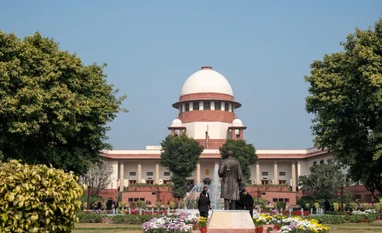Who’s challenging the law then?
Among the petitioners are political leaders and religious organisations, including:
- Political figures like AIMIM MP Asaduddin Owaisi, AAP MLA Amanatullah Khan, Trinamool Congress MP Mahua Moitra, RJD MPs Manoj Kumar Jha and Faiyyaz Ahmad, and Congress MP Mohammad Jawed.
- Religious groups such as the Samastha Kerala Jamiathul Ulema, the All India Muslim Personal Law Board, and Jamiat Ulama-i-Hind President Maulana Arshad Madani.
- Opposition parties including the Congress, Trinamool Congress, CPI, YSRCP, Samajwadi Party, TVK (actor Vijay’s party), RJD, JDU, AIMIM, AAP, and the Indian Union Muslim League.
)













